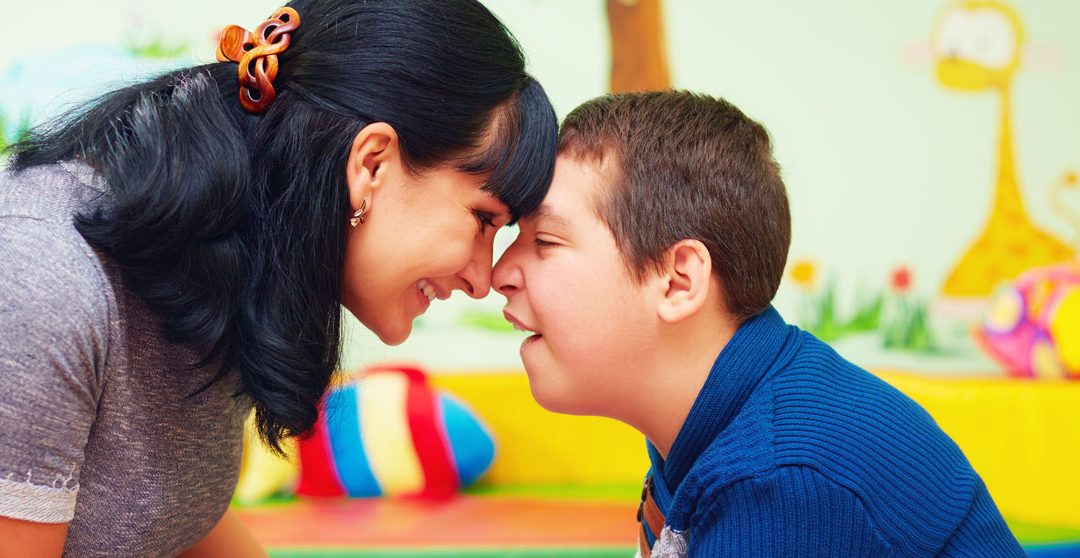Assist Life Stage Transitions
HOPE DISABILITY
Assist Life Stage Transitions Support
Elderly People Struggles with the Loss of Independence and the Need for Assistance
Many older people feel isolated, depressed and bored. They may experience a sense of loss as they come to terms with the reality that they will no longer be able to independently maintain their homes. With this in mind, it is essential to provide elder-friendly support services so that a person’s independence is maintained as long as possible.
This article provides information on the specific needs of older adults during different life stages, implications for design and planning and possible solutions available for home care.
Get a Free Quote!
Assist Life Stage Transitions Services
Assist Life Stage Transitions for disabilities
Disabilities are complex conditions that may include a large range of physical and functional impairments. Some disabilities may be temporary or of a long-term nature. The prevalence of disabilities increases with age. By mid-life, the prevalence increases from 1 in 10 people aged 60 years and over, to 1 in 5 people aged 85 years and over. In addition, the prevalence of disability increases with each successive 10-year age group after the mid-life period. This is a complex phenomenon, with many, but not all of these increases linked to a person’s age. There are many factors that may contribute to an older person’s disability, including a person’s genetics, the health and functional state of the person’s body, the social and environmental factors that affect a person’s health and the environment in which they live.
NDIS Assist Life Stage Transitions
The Aged Care and Disability care (NDIS) is Australia’s new national plan for people with disability and older age-related support. This new plan aims to put the person at the center of their support. The NDIS is an opportunity for people with disability, their families, carers, and all other affected people, to find new ways of living, working, and supporting each other. The NDIS supports people, who may have disabilities, with a range of support needs. Some of the services available through the NDIS include: - Assist life stage transitions for disabilities. - Assist people who are moving into a caring environment. - Assist with support and accommodation arrangements. - Assist with skills development. - Assist with decision making and planning. - Assist with daily activities and activities of daily living.
Life stage transitions support
Many people living with a disability may also be living with the challenges of growing older. During the life course, individuals may face the loss of independence, the need for assistance, and changes in work and/or family circumstances. These life stage transitions call for support and assistance. The person may need assistance with daily activities and tasks, such as dressing, toileting, showering, eating, preparing meals, and using the toilet. They may also need assistance with decision-making and/or planning. The support required during life stage transitions may vary from person to person. It depends on the person’s age, health and functional state, their support needs, and the environment in which they live.
Expertise in life-stage transitions
One of the challenges facing people with disability is maintaining their life skills. The loss of independence can cause a person to lose confidence and build the necessary experience and expertise to manage daily activities and tasks. People may also lose knowledge or skills through disuse, absence of practice, or as a result of illness. Home support services may support people with expertise building by arranging assistance with daily activities and tasks. This assistance may include assistance with: - Preparing meals. - Eating. - Bathing. - Grooming. - Managing medication. - Managing finances. - Managing bills and other household expenses. - Communicating. - Using the computer. - Driving a car.
Support connection and coordination
People with disability and/or older age-related conditions face challenges in maintaining connections with family and friends. Many people find that they no longer have the same social networks as when they were younger. Additionally, older people may need assistance with connecting with the community and/or institutional services, such as the local council, health care providers, and/or the aged care facility. Home support services may help people to maintain connections by: - Helping people with disability connect with the community and institutional services. - Helping people with disability to maintain their existing relationships. - Supporting people with disability to connect with family and friends.
Mentoring, peer support
During each stage of life, individuals may come across barriers that they are unable to overcome on their own, such as difficulty in finding work, developing the necessary skills, and accessing social and/or financial resources. Peer support services may provide guidance and assistance to people who are experiencing difficulties. This may include: - Helping people with disability access social and/or financial resources. - Helping people with disability to address barriers that they encounter. - Supporting people with disability to access existing opportunities. - Helping people with disability to apply for jobs. - Helping people with disability make changes to their work. - Helping people with disability to make changes to their work location. - Helping people with disability to make changes to their job duties.
Individual skill development
Many people with disability and/or older age-related conditions experience challenges in developing the necessary skills for daily living. Home support services may support people to develop self-confidence, independence, and/or necessary skills, such as: - Helping people with disability to build self-esteem. - Helping people with disability to develop a positive sense of self. - Helping people with disability to develop social skills. - Helping people with disability to build self-confidence and independence. - Helping people with disability to manage stress and anxiety. - Helping people with disability to address issues of self-worth. - Helping people with disability to identify and address barriers. - Helping people with disability to manage time.
Decision making and planning
People may face challenges in making decisions and planning for the future. The loss of independence may cause a person to neglect their own needs and/or the needs of family members and/or friends. Home support services may support people make decisions and planning for the future by: - Helping people with disability to make decisions about health care. - Helping people with disability to make decisions about financial matters. - Helping people with disability to make decisions about the timing and pace of health and/or social change. - Helping people with disability to identify and address barriers. - Helping people with disability to plan for the future.
Daily activities and activities of daily living
Many people with disability and/or older age-related conditions experience challenges in daily activities and tasks. Home support services may support people to perform daily activities and tasks, such as: - Helping people with disability to maintain their personal hygiene. - Helping people with disability to maintain their homes. - Helping people with disability to maintain their leisure activities. - Helping people with disability to maintain their diet. - Helping people with disability to maintain their exercise program. - Helping people with disability to maintain their social relationships.
Assist Transition to Supported Living
As many older people experience a loss of independence, it is essential to provide assistive and disability-friendly services. The Home Support Transition to Supported Living program assists in supporting older people who are transitioning from residential care back into the community
our Support
Hope Disability Support provides support to all young people and adults with everything related to support, care, accommodation, and independent living issues. Call Hope Disability Support for all your support with the NDIS.
Clients say
Hope Disability Support's team Hope Disability Support understands us and our circumstances. They go above and beyond. We are so satisfied with their services that we will never leave.

The fact that they are available 24 hours a day is astonishing! I wouldn't have any idea what to do without Hope Disability Support. They've been there for us in times when our families needed it most.

Hope Disability Support and its experienced staff have changed my child's life for the better. I would highly recommend Hope Disability Support's services.

Previous
Next
News & Updates
We support to all youths, Young people and adults regarding anything, care , support, accommodation and independent living issues.
Assist Life Stage Transitions FAQ
What have assisted life stage transitions for disabilities?
Assist life stage transitions is a care program that assists a person with a disability to transition through different stages of life, such as a person moving from living in a center or residential home to living in a community. With assisted life stage transitions, a person may receive support as they move from one stage to another. People may experience a decline in their ability to independently maintain their home and need assistance with daily tasks such as cooking, cleaning, managing medications, and finances. Assist life stage transitions services may also include help with social activities, such as visits from family and friends, or mentoring by a volunteer.
How does NDIS assist life stage works?
Assist life stage transitions services are provided by a person-centered team. This team includes professionals who have expertise in the areas of disability and aging. The team is directed by a disability specialist, who acts as a consultant for the team and the person. The specialist works with a person to identify goals, set priorities, and develop a plan of action. The specialist also provides advice and guidance as the person works with the team.
Do you provide individual skill development?
Individual skill development occurs when a person receives, at their request, one-on-one assistance to learn new skills. Most assistive devices, such as a computer, can be programmed to respond to specific requests. Assistive technology is a highly individualized approach. Therefore, some people may feel frustrated if they receive a device that does not meet their needs.
Is assisted life stage transitions right for you?
Assist life stage transitions is ideal for people who are at risk of losing their independence. It is also appropriate for people who want to remain in their homes, though some assistance with daily activities may be beneficial for people who would like to move into a nursing home. Assist life stage transitions may be helpful for people who have a disability (e.g., someone who has a health condition that affects their mobility or cognition), or for people who are experiencing a loss of independence (e.g., a person who is approaching retirement age).
Who is assistance life stage transitions for?
Assist life stage transitions are designed for seniors who are at risk of losing their independence. It is also appropriate for people who would like to remain in their homes, though some assistance with daily activities may be beneficial to people who would like to move into a nursing home.
What comes in life stage support?
If a person is living in a community, assist life stage transitions may include help with daily activities and chores, including cooking and cleaning. If a person is living in a home, assistance life stage transitions may include assistance with daily activities and chores, including cooking, cleaning, and managing medications, and finances. In some cases, help with social activities, such as visits from family and friends, or mentoring by a volunteer may be included in the package.
Do you have an expert for life stage transitions?
Assist life stage transitions may include the services of a geriatric care manager who can connect a person to community resources. The manager can also help a person set priorities and align their needs with available services. Some people may benefit from having someone to help them plan activities, such as visits with family and friends. This can help to avoid feelings of isolation. Assist life stage transitions may include services provided by a volunteer coordinator who oversees the activities of a person in a community setting.
Do you assist with daily activities in the life stage?
Assist for daily activities in the life stage may include assistance with activities such as cooking, cleaning, and managing medications, and finances. Assisting with daily activities may also include assistance with activities such as cooking, cleaning, and managing medications and finances.
What have assisted life stage transitions for?
Assist life stage transitions is a care program that assists a person with a disability to transition through different stages of life, such as a person moving from living in a center or residential home to living in a community. With assisted life stage transitions, a person may receive support as they move from one stage to another. Life stage transitions may involve moving into a community, an assisted living residence, or a nursing home.
How much do assist life stage transitions cost?
Assist life stage transitions are delivered on a fee-for-service basis. It is generally not covered by Medicare or by most health insurance policies. The cost of assisting life stage transitions varies, depending on a person’s needs and available funding. In some cases, the cost may be covered by a home care plan.







